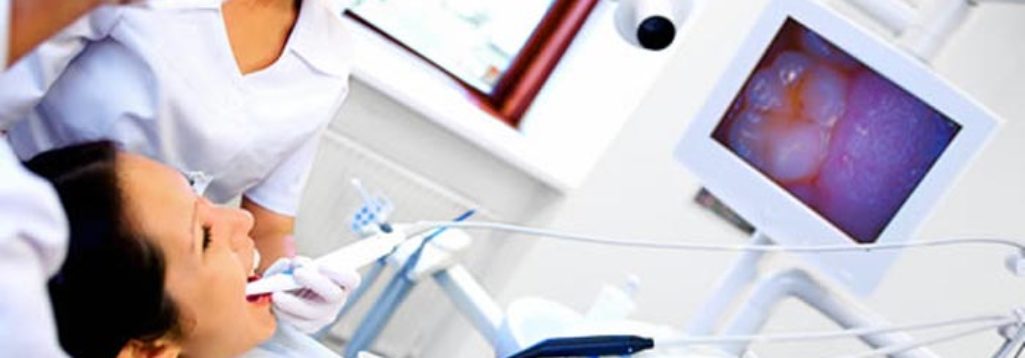
|

|

|

|

A Complete Guide to Mouth Sores
What are mouth sores?
Mouth sore or mouth ulcer is the wearing away or loss of the mucous membrane that lines the inside of our mouth. These are delicate linings and their erosion creates painful sensations in the mouth.
Mouth sores affect many people during their lifetime. The sores are actually not serious except in some extreme cases involving cancer. Usually these sores are irritations that last for about a week or ten days. Sometimes a virus called herpes simplex also causes the sores which can then be more painful than others.
Where do these sores appear in the moth?
Our mouth is full of soft tissues. Apart from soft tissues of the gums, there are lips, tongue, roof and base of our mouth. All these areas in our mouth can get affected by sores. The alimentary canal leading from the mouth to our stomach is also included in the soft tissues of the mouth which can sometimes develop sores.
Various types of mouth sores:
There are different types of mouth sores. Some of them are described below:
Cold sores
Cold sores are blisters filled with fluid inside, near or around the mouth. It can appear on fingers or nose also. They appear in patches and may last for 15 or more days. They are painful and gives a burning sensation. Sometimes they bring in mild fever and flu like symptoms.
It is caused by herpes simplex and is contagious.
Canker sores
A canker sore is an ulcer in the mouth. It is tiny open wound which is painful and uncomfortable till it lasts. They can be minor or major canker sores depending on severity of infection. Minor sores are a cm in round and may last for a week. Major sores are bigger and may last for 15 days.
The causes include injury of the tissues in the mouth, acidic foods, some drugs like ibuprofen, or allergies. Many times stress also causes canker sores. Women get canker sores more than men because of hormonal changes during various periods of life span.
Remedies include mouthwashes, oral medications like steroids, or dental lasers depending on severity of ulcers.
Milk of magnesia as a home remedy that also gives comfort during the illness.
Gingivostomatitis
Stomatitis is a term used for inflammation in the mouth. Gingivostomatitis is a contagious, painful sores and swelling in the mouth, common in children below 6 years of age. It may occur in adults with more severity. It is caused by herpes virus like cold sores. The gums get inflamed and red and become painful. Because of the inflammation fever also occurs. It is accompanied by bad breadth and drooling in children. Eating and drinking becomes painful, therefore soft foods are advised. It is best to consult your dentist who may prescribe mouth wash and other oral medications, to relieve the symptoms.
Folate deficiency anaemia
When level of red blood cells gets lower than required, the cells in the body don’t get enough oxygen which results in lack of haemoglobin. Usually iron deficiency causes anaemia. If there is iron deficiency in blood, gums start looking pale and become susceptible to inflammation and diseases caused by bacteria and viruses. It is vital to treat anemia to get full recovery from mouth sores. Your dentist may advise treatment himself, and with consultation of your physician.
Major causes of mouth sores
There a numbers of reasons for mouth sores among which the most common is poor oral hygiene. Poor oral hygiene gives opportunities to bacteria to grow in the mouth and multiply causing damage to teeth and gums. When proper care is not taken, the inside of the mouth and gums are attacked by bacteria which causes pain and discomfort the affected person.
The next major cause can be injury. Injury is caused in the mouth through biting the inside of the cheek accidentally. If by mistake you bite your cheek, it so happens that because of protrusion the same spot gets bitten over and over again, and it results in a sore. Sometimes using hard tooth brushes also cause abrasions on the gums which get infected by the bacteria in the mouth which result in the sores. When the teeth are misaligned, there is continuous rubbing against teeth due to putting pressure onto the area which bursts into sores. Eating hot foods may also cause injury to tongue and cheeks. Strong antibiotics also cause irritation in the mouth causing injury. Injury is also caused by ill fitting dentures, protruding prosthetics, injury during tooth extractions and also injuries resulting from hard foods.
Medication is also a factor that can produce ulcers. Certain medications produce side effects. For example medications may reduce good bacteria in the mouth which keeps bad bacteria in control. In such a case bad bacteria takes over and cause ulcers in the mouth.
When the person is going through serious medical problem, the immunity gets lower which allows sores in the mouth.
Viral infections also are a major part in creating mouth ulcers. When immunity levels are low, certain viruses attack the mouth resulting in sores in the mouth.
Skin rashes in the mouth can be caused by bacteria, chemicals, acidic formulations in the mouth and reduced immunity.
The symptoms of most mouth sores include swelling, irritation on consuming salty or acidic foods, pain in and around the mouth and sometimes loss of appetite.
Treatment options for mouth sores
In most cases mouth sores are harmless except in malignancy where cancerous cells are responsible to cause the mouth ulcers. These sores clear up in a week or two. If they persist then it may be a cause to go deeper consultations.
Usually mouthwash or gels resolve the ulcers and sores. There are a few simple to follow guidelines to follow for ease the symptoms and reducing the risk of sores resulting in complications.
- Drink a lot of fluids
- Avoid spicy foods
- Take paracetamol to relieve pain
- Do not consume alcohol
- Use a topical steroid mouthwash or gel
And most of all follow a strict oral hygiene schedule. Keep your mouth clean at all times. Brush your teeth after every meal. Use soft gentle brush when having ulcers in the mouth. Take a healthy balanced diet. Keep a healthy lifestyle.
If you have other medical issues, keep your dentist aware of your those as well so they can decide on the best course of treatment for you.






